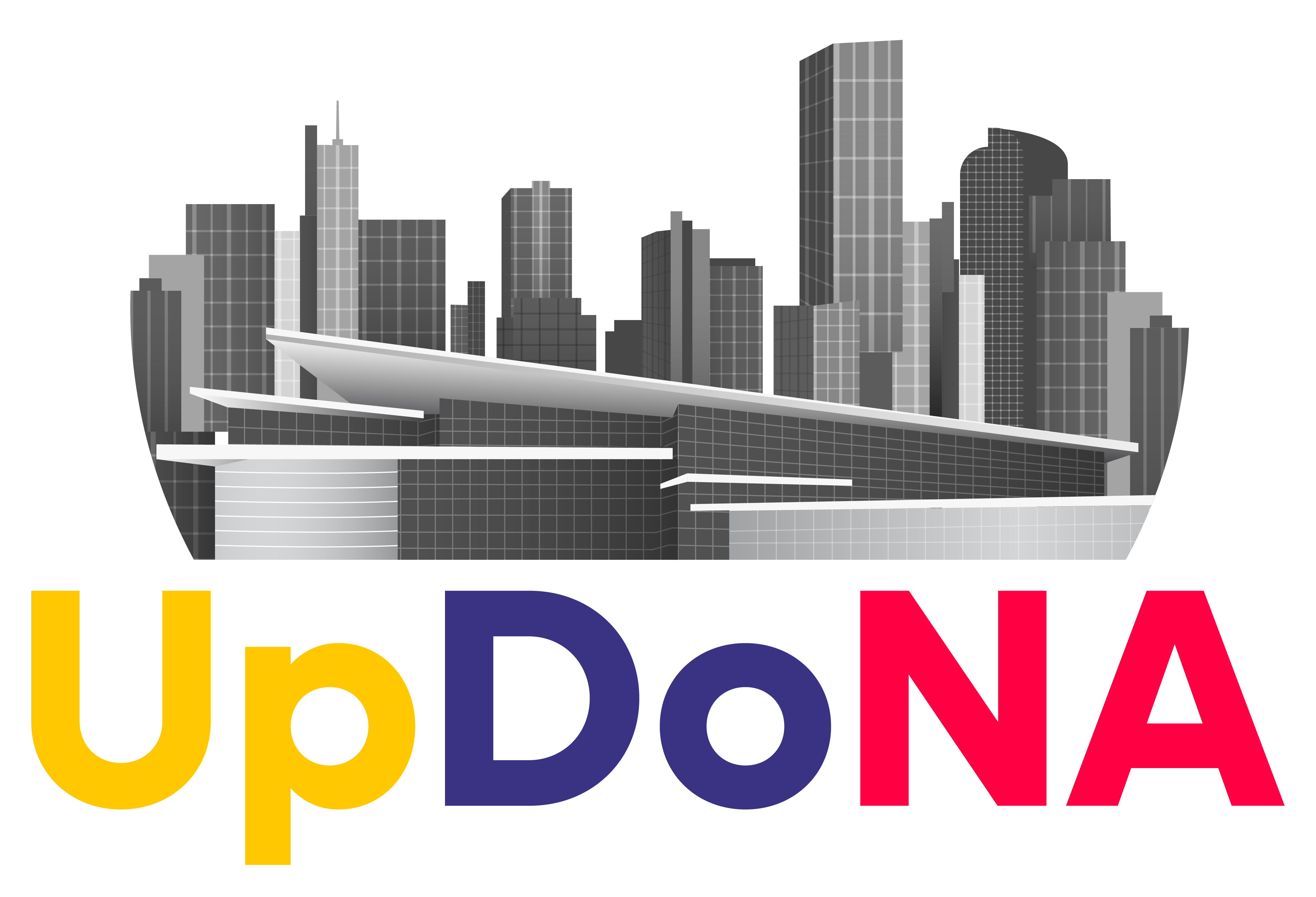Since 1983, the Salvation Army’s main homeless shelter has been the Crossroads Center at 1901 29th Street at Arkins Court in Denver, just off of Brighton Blvd. They also operate facilities at five other sites, including four hotels and the Rodeway Inn on Zuni at Speer Blvd. Crossroads is a men-only facility while the Rodeway Inn provides shelter for women and those with gender identity issues. During the pandemic, when someone in any shelter tested COVID-19 positive, there was a need to move that person out so that he didn’t infect the others in the shelter. One of the four hotels is reserved only for anyone that has a COVID positive diagnoses.
On April 1, 2022, two members of our Safety and Quality of Life Committee toured the Crossroads Center and Aloft Hotel, which is another of the four hotels they manage. We met with Kristen Baluyot and Matt McAdams. Kristen is the Denver Metro Social Services Director for the Salvation Army, and has experience in mental health, international social work, housing and homelessness. Matt came to the Crossroads facility in the middle of the COVID pandemic from Los Angeles and brought a wealth of experience with him. We spent 2 ½ hours together, and they were very open and willing to answer all our questions. Their deep care and respect for those less fortunate clearly showed during the discussion.
Crossroads Center
Despite the imagined image of a shelter, the Crossroads Center is clean and safe. At one time it housed 800 men nightly, with most sleeping on mats packed tightly together. Today, their normal capacity is 300 with surge capability to 400 in times of inclement weather. The beds are purposely not packed tightly together. They feel that allowing more area per bed creates a better environment and provides the maximum feeling of personal space that is possible in a congregate shelter.
The guests can stay at the shelter 24 hours a day. This is a different concept than that which is used at some other shelters such as the Denver Rescue Mission where guests must leave in the morning and spend the day outside of the shelter. They do not compete daily for beds as in previous shelter concepts. Rather, once in the facility, they are welcome to stay as long as they want and as long as they continue to obey the rules. Men leave for several reasons such as finding stable housing, moving away to another town or moving in with relatives. Sometimes, they just decide to go back to the streets (leaving a bed empty for two consecutive nights means it is forfeited). Other times, they are asked to leave because they have broken the rules. There is an average of about five men per day that leave for one reason or another, which is only about a 1.6% daily turnover rate. This is not to suggest that all Denver shelters are full. They are not, and there is available shelter space every night. Crossroads is generally full because it is centrally located.
The Center employs 15 case workers who work with the guests daily. The goal is to identify the specific circumstances that resulted in their homelessness and to identify a course of action that will end the episode of homelessness for that individual. Engaging with one of the case workers is not a requirement to stay at Crossroads, but the staff attempts to make it as attractive as possible. If the action plan is successfully implemented, the reasons for the homelessness episode are resolved, and the guest will be prepared for success in a better housing situation. The staff assists in locating permanent supportive housing or a stay with family or some other suitable future. The guest decides on his own if and when the time is right to leave for the better living arrangement.
There is not an extensive set of rules, but most are common sense, such as no bullying, threatening or disruptive behavior and there is zero tolerance for violent actions. Men with addictions can stay at Crossroads but using drugs or drinking alcohol within the facility is forbidden. Upon intake, guests are provided with a handbook that explains the expectations of living at the shelter. Failure to comply with the rules results in an ATL (Ask To Leave). Upon receiving an ATL, the guest must leave, although there is recourse to request readmittance if the offending behavior has been addressed in some manner. Some are readmitted through this process.
Meals are prepared at the Salvation Army’s Harbor Light Center (which is the location of the Salvation Army’s addiction treatment center) located at Champa and 21st Street. After preparation, the meals are delivered to Crossroads and provided to the guests. They do not have a dining room, so guests must eat where they can. They target nearly 3000 calories per day so nobody goes hungry.
Crossroads coordinates with Metro Denver Homeless Initiative’s Homeless Management Information System (HMIS) to maintain a By-Name List (BNL) of all guests. Crossroads personnel maintains contact with them after they leave the facility, continuing to offer services as needed in order to provide the best chance for the person to remain housed after the homelessness episode is initially resolved. Experience in other cities have shown that BNLs are an effective way to improve the chances of a more permanent post-episodic housing. To my knowledge, Denver does not compile a BNL of the overall homeless population.
The Crossroads Center building is quite old and is planned for demolition with a supportive housing complex being built in its place. Prior to its demolition, a replacement will be built. The RFP currently outstanding says “Location boundaries for eligible off-site locations are I-70 to the north, I-25 corridor to the west, 6th Avenue to the south and York Street to the east, with a preference for locations with easy walking access to St. Francis Center and Denver Rescue Mission Lawrence Street Shelter. The proposal must include 500 shelter beds, with no more than 300 of those beds being in a congregate setting.” https://www.denvergov.org/Government/Agencies-Departments-Offices/Agencies-Departments-Offices-Directory/Department-of-Housing-Stability/Partner-Resources/Funding-Opportunities
My overall impression of the center was that it was a very calm environment. That is due in part because women are now employed there, a change from the previous management. Their presence brings a calmer approach to the operation, and provides a gentler overall feeling in the facility. The facility is humane, safe and is run by caring people who believe that all guests deserve respect and dignity.
Aloft Hotel
Next, we visited Aloft Hotel at 15th and Stout where we were joined by Susan Hewson, one of the workers at Aloft. This is a hotel that is familiar to many UpDoNA members who live in Spire and attended Happy Hours at Aloft prior to COVID. It has changed significantly since that time. This visit left me with a less positive overall impression, and with some significant concerns.
During COVID, the Federal Emergency Management Agency (FEMA) saw the danger in maintaining large numbers of people in congregate shelters where social distancing was impossible. FEMA provided funds for the provision of non-congregate settings for certain individuals, and Aloft was selected for one of those settings. Guests at Crossroads who were at high morbidity risk if they contracted COVID were moved to Aloft. This included men over 65 years of age and those with underlying medical conditions. The contract was first signed in 2020 and has been extended several times. The current contract runs through December, 2022.
Since I was familiar with Aloft from pre-COVID Happy Hours that I arranged as the then-chairman of the Spire Social Committee, I was a bit taken aback when I entered. I passed a guard at the entrance who asked my reason for needing access. As I walked into the lobby, I saw racks of clothes, dozens of plastic bags filled with more clothes (presumably), and stacks of supplies on the floor. I noticed no damage of any kind in the lobby; it was just very messy.
Guests staying at Aloft have the same rules as those at Crossroads, but Aloft is somewhat less strict in enforcement. Historically, this was because they hesitated to ask an at-risk man to leave, potentially putting him into a more dangerous pandemic-related situation. When asked about the drug use commonly seen in the alley behind Aloft, there was a disturbing lack of ownership of the problem, or even an acknowledgement that the problem could be related to the shelter. It was re-stated that they only control what happens inside their building. On one hand, that position might make sense, but it is very disturbing that they don’t seem to feel responsible to mitigate the impacts that their presence brings to a community.
Personally, the reasons for the continued use of Aloft for COVID-related shelter is difficult to understand, in these days of significantly declining new-case rates. Further, the hotel that is being used to house people with positive tests (mentioned earlier in this article) is today very lightly used with less than ten people currently staying there. Since the original purpose for the use of Aloft was to protect people that are highly at-risk due to COVID, it does not appear necessary to continue utilizing Aloft. This is a part of Marriott International, in an area with some of the most expensive real estate prices per square foot, and the lease is now approaching two years in duration. Kristen responded by saying that there could be another wave of COVID. She also indicated that she doesn’t know where the guests will go if the contract is terminated. That response is unsettling, since it could indicate a desire to maintain the hotel permanently as a shelter directly adjacent to a residential building with 900 residents, across the street from Embassy Suites and the Colorado Convention Center.
Photo attribution: Salvation Army


